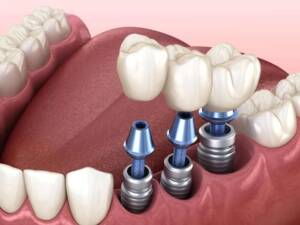With a surge in the quest for the perfect smile, teeth whitening has become a popular cosmetic dental treatment. But how permanent are these pearly white results? This article aims to uncover the truth behind teeth whitening’s lasting effects.
The Allure of a Bright Smile
A dazzling white smile is often linked to confidence, attractiveness, and even success. Over time, our teeth can lose their natural whiteness due to various factors, leading many to seek treatments that promise a brighter, whiter smile.
Understanding the Teeth Whitening Process
What is teeth whitening?
Teeth whitening is a cosmetic dental procedure designed to lighten teeth by removing stains and discolouration.
Brief on the methods of teeth whitening
Common methods include over-the-counter whitening products, at-home bleaching kits prescribed by dentists, and in-office whitening treatments.
How Long After Home Teeth Whitening Can I Drink Tea
The Changing Colors: Why Do Teeth Discolor Over Time?
Teeth can discolour due to a myriad of reasons:
- The natural ageing process and enamel thinning: As we age, our enamel wears down, revealing the naturally yellow dentin beneath.
- Lifestyle and dietary choices: Consuming beverages like coffee, tea, and red wine or using tobacco products can lead to external staining.
- Medications: Some medications, like tetracycline, can darken tooth colour.
Is Teeth Whitening Truly Permanent?
Whitened teeth won’t stay bright forever. The duration of the whitening effect can last anywhere from a few months to a few years, depending on the method used and post-treatment care.
- Factors affecting longevity include:
- The original shade of the teeth.
- The whitening method used.
- Dietary and lifestyle habits post-whitening.
- Making the Most of Your Whitened Smile
To maintain a radiant smile post-treatment:
- Avoid foods and beverages that stain for at least 48 hours after treatment.
- Maintain good oral hygiene by brushing, flossing, and visiting the dentist regularly.
- Consider using a whitening toothpaste or occasional touch-up treatments.
Are You a Suitable Candidate for Teeth Whitening?
While many benefit from teeth whitening treatment, it’s not suitable for everyone:
Individuals with veneers, crowns, or fillings might experience uneven whitening.
Those with extremely sensitive teeth, gum disease, or worn enamel should consult with a dentist before considering treatment.
What Not to Eat After Teeth Whitening
Safety Concerns and Potential Risks
Teeth whitening is generally safe, but potential side effects include:
Tooth Sensitivity: Some might experience increased sensitivity post-treatment, which usually subsides over time.
Gum Irritation: The bleaching agent can irritate the gums, but this is typically temporary.
Regularly consulting with a dental professional can help minimize risks.
Conclusion
Teeth whitening can offer a brighter smile, but it’s essential to have realistic expectations regarding its permanence. The key is to maintain good oral hygiene and be mindful of dietary choices to prolong the effects. Always consult with a dental professional to ensure the treatment aligns with your dental health and aesthetic goals.
Transform Your Smile Today
Experience Dazzling Teeth Whitening at GKDental Hawick NHS Family Dental Practice! Unveil a Radiant You with our Professional Treatment. Embrace Confidence, Book Now to Secure Your Spot! Limited Openings Available – Illuminate Your Smile Now!
Also read: How Much Is Teeth Whitening UK?





